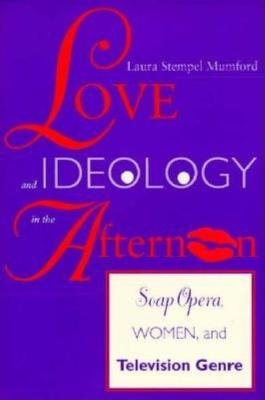Arts & Politics of the Everyday
1 total work
'Why do I like soap operas?' Laura Stempel Mumford asks, and her answer emerges in a feminist analysis of soap opera that participates in current debates about popular culture, television, and ideology. She argues that the conventional daytime soap has an implicit and at times explicit political agenda that cooperates in the 'teaching' of male dominance and the related oppressions of racism, classism, and heterosexismNso that they seem inevitable. Unlike other critics of the genre, Mumford situates her argument within her own history as a soap opera viewer and her struggle to reconcile her pleasure in the genre with a recognition of the form's repressive tendencies.Mumford blends theory, criticism, and personal practice into a detailed analysis of the genre and its viewers: the different levels of viewer competence crucial to understanding soap opera narratives; how soaps blur the boundaries between public and private spheres to construct a particular kind of community; the functions of clusure in programs' narratives and viewer expectations about particular storylines; the paternity mystery, a fictional restatement of the power of the father; and, various elements surrounding soap operas, such as fan magazines, network programming strategies.
"All My Children", "General Hospital", "Another World", "One Life to Live", "Days of Our Lives", "The Young and the Restless": a close reading of their texts will also answer some larger questions about television and its place in the broad landscape of popular culture.
"All My Children", "General Hospital", "Another World", "One Life to Live", "Days of Our Lives", "The Young and the Restless": a close reading of their texts will also answer some larger questions about television and its place in the broad landscape of popular culture.
